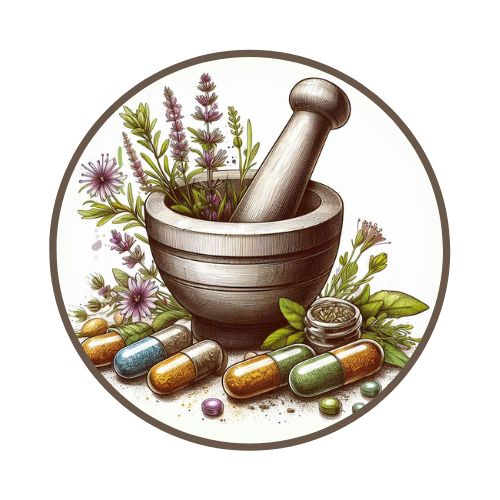Some people think that the FDA approves herbal remedies like it does drugs. In fact, the FDA has never approved foods, cosmetics, dietary supplements, or herbs. All of these industries are carefully regulated by the FDA—they just don’t have to get pre-approval for every new product, as drug companies do. And if you think about it, would you really want every new muffin recipe to get FDA approval before it can be sold? Pharmaceuticals are different than foods, or even herbal medicines, so it’s no surprise they should be treated differently.
In each of these industries, there are well-known ingredients that have been used safely for many years. Innovators use these, combining them in new ways all the time. Other innovators create ingredients that may (or may not) be as safe as the traditional ingredients. Both kinds of innovators are responsible for making sure their products are safe. In rare cases, a company or the public may discover that the ingredients they have used for many years may not be quite as safe as previously thought, or don’t combine well. When this happens, we need to stay on top of the latest science, to make changes as needed. But innovation usually consists of combining well-known ingredients in new ways to provide unique solutions.
FDA regulations govern many aspects of herbal remedies including formulation, product specifications, supplier qualification, ingredient identity, potency, purity, testing, weighing and blending, encapsulation, packaging, labeling, sales, shelf-life, adverse event reporting, and more. These regulations are all designed to ensure these products are as safe as possible, without requiring pre-approval.
But there are some areas where current regulations really don’t support innovation. For example, both the FDA and the FTC think clinical trials are the only acceptable form of scientific evidence, even though Congress and common sense say otherwise. While clinical trials are appropriate for conventional drugs with one active ingredient, they are much less suited to complex formulas.
Complex formulas are the very essence of many herbal traditions, including Ayurvedic, Traditional Chinese Medicine (TCM), several European traditions, and the better part of the American Eclectic school of herbal medicine. Complex formulas use the dose-response curve of individual ingredients. Both science and experience tell us that smaller doses have smaller effects, but the effects don’t disappear—and small doses have fewer and smaller side effects, too. By carefully combining small doses correctly, formulators can add or even multiply outcomes, without creating side effects. This is both safer AND more effective than one big dose of a single ingredient. And although modern medicine is just now beginning to discover the value of complex formulation, herbalists have used this approach for thousands of years.
There are several problems with clinical trials for complex formulas. The first is cost. Clinical trials are expensive, primarily because they cater to the pharmaceutical business. Drug development costs billions per drug. The new drug filing fee alone is $1 million, so clinical trial costs of $100,000 to $500,000 are a small drop in that bucket. But for herbal remedies that usually can’t be patented, it’s much more difficult to recapture that kind of expense.
Single ingredients are tested once, and that science is good forever. But a complex formula is designed to be flexible and change over time. What happens if a minor ingredient, less than 5% of the formula, is swapped out for safety reasons, or if a more effective ingredient is found? Is the 95%+ test now worthless? Common sense says no—the formula is mostly the same. But regulatory wisdom says that if ANY part of the formula changes, the whole clinical testing process has to start over.
Clinical trials have a trade-off between effect and certainty, much like the signal-to-noise ratio in signal engineering environments. If the observed effect is significant, we are confident it happened. If the outcome is small or occurs over a longer time, we may not be so sure. Herbal medicines are designed to be gentler than pharmaceuticals, so their effects are less noticeable. Does that mean the effect didn’t happen? Our blind insistence on statistical certainty may mean that we always select a sledgehammer when a more refined tool can do a better job.
Because herbal medicine is different than pharmaceuticals, it deserves regulation that fits its needs and best practices. Lumping it together with vitamins as “dietary supplements” that can’t “diagnose, treat, cure, or prevent disease” doesn’t do that. Why are we the only country in the world that doesn’t offer natural remedies as an alternative next to over-the-counter drugs for colds and flu, headaches, muscle aches, or arthritis? These remedies have been used for thousands of years. Unlike pharmaceuticals, they really don’t need FDA pre-approval to be both safe and effective.



